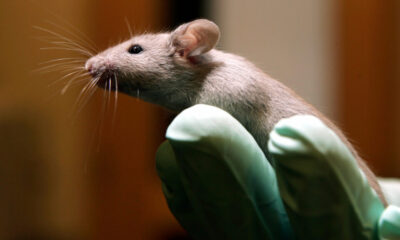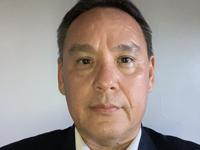Health
Francis Collins Urges Unity in Science at Liver Meeting

At the recent Liver Meeting held in 2023, Francis Collins, the former director of the National Institutes of Health (NIH), delivered a compelling address emphasizing the need for unity within the scientific community. He expressed concern over the increasing partisanship that has infiltrated scientific discourse, describing it as a “dangerous sign for the future of our society.”
Call for Collaboration in Research
During his speech, Collins highlighted the importance of collaboration among researchers, especially in the field of liver health. He noted that scientific progress relies on the ability of professionals to work together, regardless of political affiliations. “When partisanship enters the realm of science, it undermines our collective efforts to advance public health,” Collins stated.
This message resonated with attendees, many of whom are leading figures in liver research from various institutions across the globe. Collins urged these professionals to remain steadfast in their commitment to evidence-based research and to prioritize the health of the public over political divides.
Collins’ remarks come at a time when science faces scrutiny and skepticism from various sectors of society. In his address, he referenced specific challenges that have emerged in recent years, including the handling of the COVID-19 pandemic and the dissemination of misinformation related to vaccines.
Impact on Future Research Directions
The implications of Collins’ message extend beyond the immediate challenges faced by the liver research community. He pointed out that a fragmented scientific landscape can hinder advancements in vital areas such as treatment development and disease prevention. “We must stand together to overcome these obstacles,” he emphasized.
Collins also acknowledged the role of funding in fostering collaborative research initiatives. He called for increased investment in scientific research, advocating for policies that support equitable access to resources for researchers from diverse backgrounds. “Funding should not be a barrier to innovation,” he said.
As the conversation around unity in science continues, Collins’ insights remind the scientific community of the potential consequences of division. The urgency of his message underscores a critical need for scientists to engage with one another and the public to ensure that research remains focused on improving health outcomes.
In closing, Collins encouraged attendees to actively participate in efforts that promote scientific integrity and collaboration. “We are all in this together,” he stated, urging the audience to foster an environment where diverse perspectives can coexist and thrive.
-

 Technology5 months ago
Technology5 months agoDiscover the Top 10 Calorie Counting Apps of 2025
-

 Health2 months ago
Health2 months agoBella Hadid Shares Health Update After Treatment for Lyme Disease
-

 Health3 months ago
Health3 months agoErin Bates Shares Recovery Update Following Sepsis Complications
-

 Technology4 months ago
Technology4 months agoDiscover How to Reverse Image Search Using ChatGPT Effortlessly
-

 Technology1 month ago
Technology1 month agoDiscover 2025’s Top GPUs for Exceptional 4K Gaming Performance
-

 Technology2 months ago
Technology2 months agoElectric Moto Influencer Surronster Arrested in Tijuana
-

 Technology5 months ago
Technology5 months agoMeta Initiates $60B AI Data Center Expansion, Starting in Ohio
-

 Technology5 months ago
Technology5 months agoRecovering a Suspended TikTok Account: A Step-by-Step Guide
-

 Health4 months ago
Health4 months agoTested: Rab Firewall Mountain Jacket Survives Harsh Conditions
-

 Lifestyle5 months ago
Lifestyle5 months agoBelton Family Reunites After Daughter Survives Hill Country Floods
-

 Technology4 months ago
Technology4 months agoHarmonic Launches AI Chatbot App to Transform Mathematical Reasoning
-

 Technology3 months ago
Technology3 months agoUncovering the Top Five Most Challenging Motorcycles to Ride





















